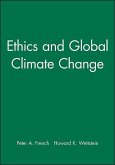
Gebundenes Buch
An Essay in the Philosophy of Language
1. April 2004
Oxford University Press

Ähnliche Artikel

Gebundenes Buch
Or Between God and the Creator
27. April 2018
Partridge Publishing Singapore

Broschiertes Buch
The Israel Colloquium: Studies in History, Philosophy, and Sociology of Science Volume 2
1986.
30. Juni 1986
Springer / Springer Netherlands
978-90-277-2161-7

Gebundenes Buch
The Israel Colloquium: Studies in History, Philosophy, and Sociology of Science Volume 2
1986
31. Mai 1986
Springer / Springer Netherlands
978-90-277-2160-0

Gebundenes Buch
21. Januar 2020
Columbia University Press






Ähnlichkeitssuche: Fact®Finder von OMIKRON
